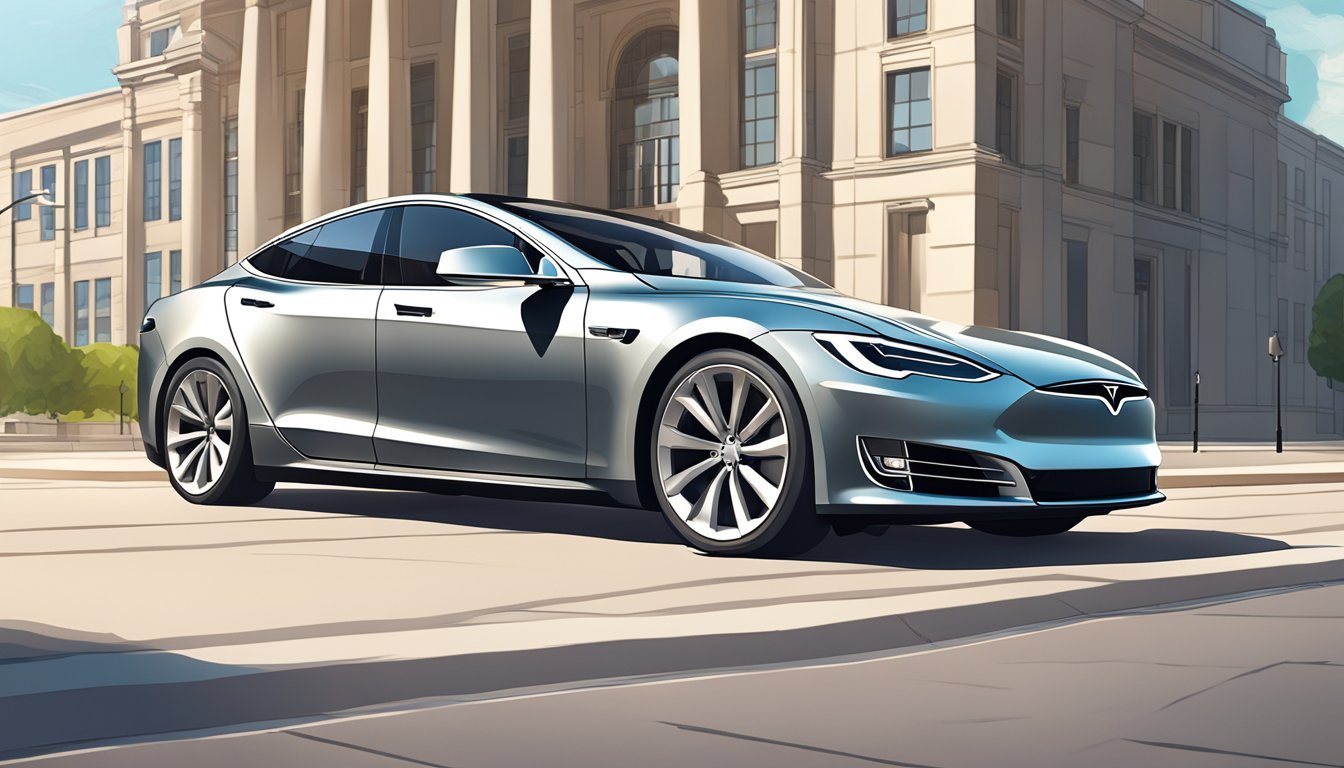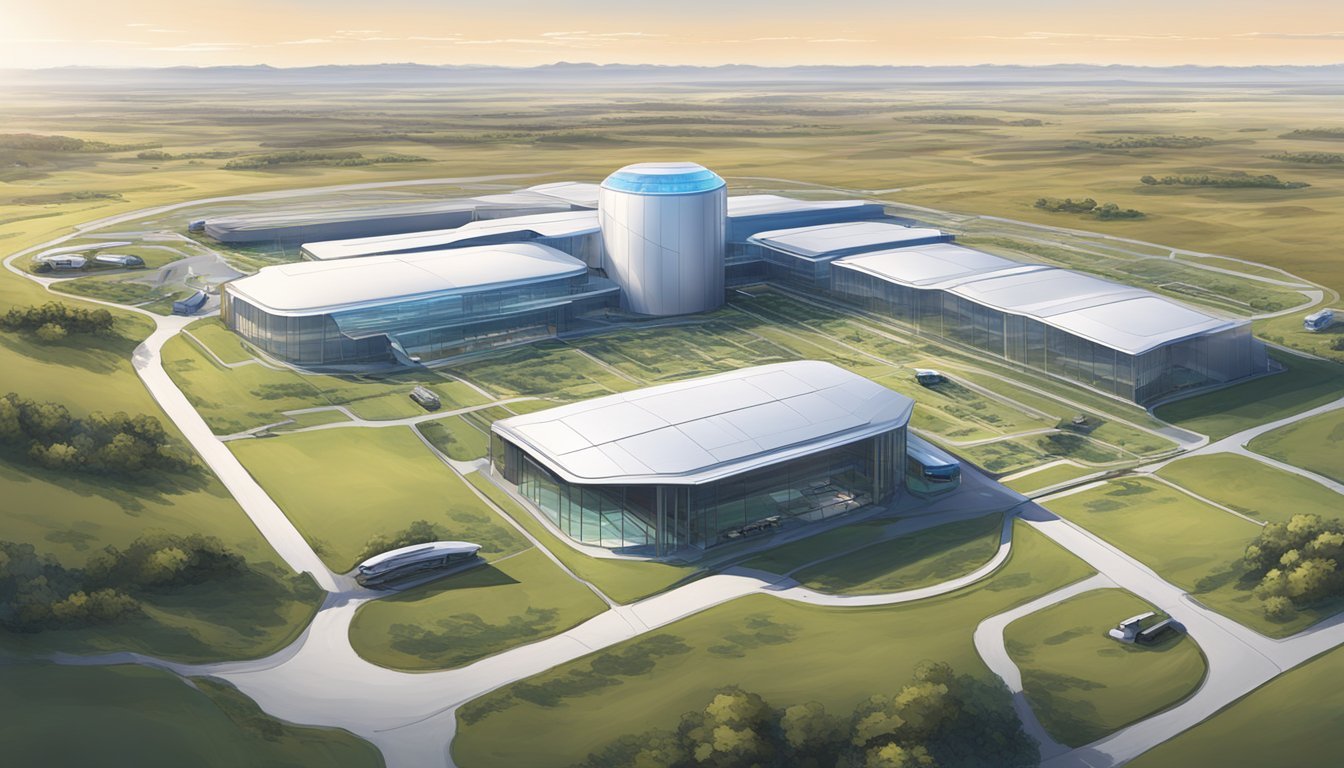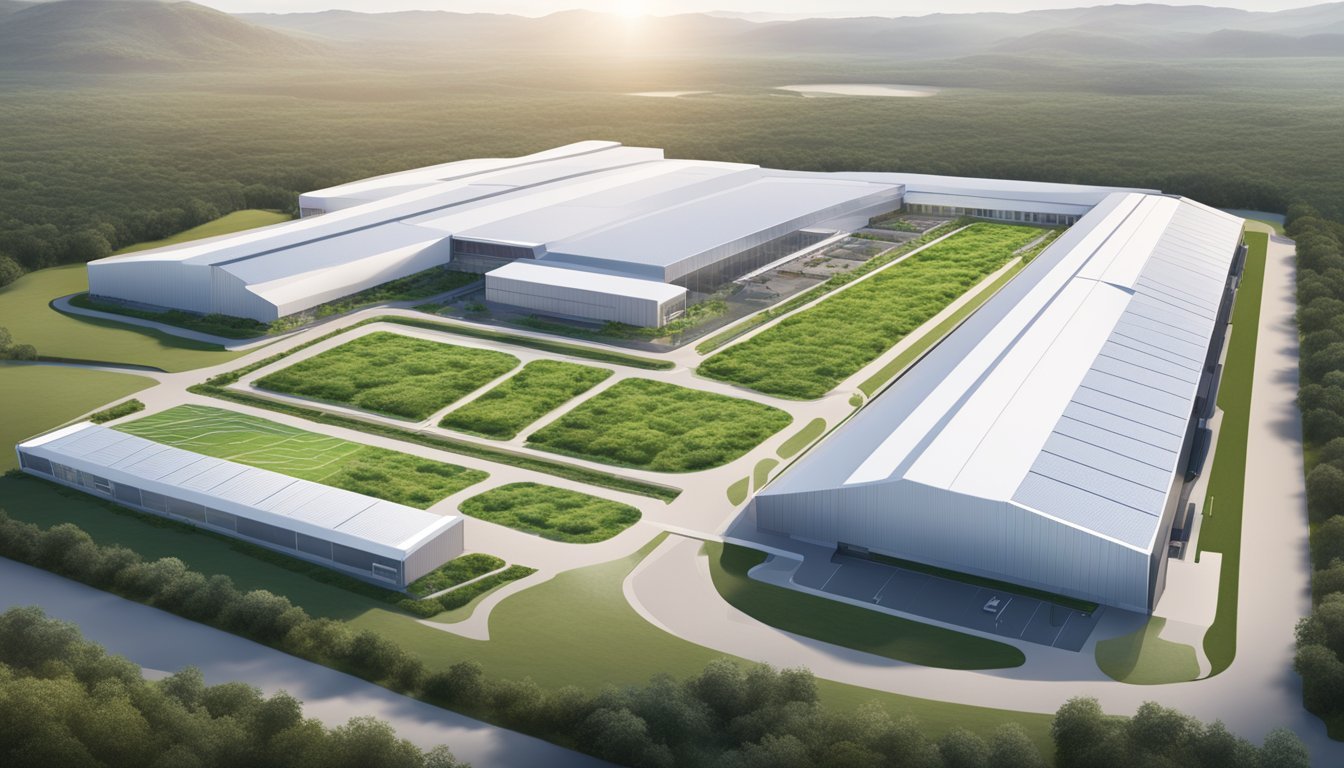Tesla Austin County: Gigafactory Texas Transforms Region with Massive Job Surge!
Tesla's presence in Austin, Texas has grown significantly since the establishment of Gigafactory Texas. The massive manufacturing facility, located in unincorporated Travis County just outside Austin, has become a major economic driver for the region. Construction began in July 2020, and limited production of Tesla's Model Y started before the end of 2021.
Tesla has rapidly become Austin's largest private employer, with over 22,000 workers at its Gigafactory Texas site. This growth has exceeded initial projections, as Tesla originally promised Travis County the plant would bring in 5,000 jobs. The company's expansion has not only created thousands of direct jobs but has also generated substantial economic activity in the area.
Gigafactory Texas, also known as Giga Texas or Giga Austin, continues to evolve. Tesla has filed plans with the city of Austin to expand the facility further, proposing a new 500,000-square-foot building at the site. This ongoing development underscores Tesla's commitment to growing its operations in Texas and solidifies the company's significant role in the Austin-area economy.
Tesla's Impact on Austin's Economy
Tesla's presence in Austin has generated significant economic activity and job growth for the region. The company's Gigafactory has become a major employer and economic driver, influencing various aspects of the local economy.
Job Creation and Employment Opportunities
Tesla has become Austin's largest private employer, creating thousands of new jobs in the area. As of 2022, the company supported over 15,000 jobs in Travis County through direct employment and its supply chain. This represents a substantial increase from previous years, with headcount growing by 86% compared to 2021.
The Gigafactory's opening has exceeded initial projections. Tesla originally promised 5,000 jobs to Travis County, with at least half going to local residents. The actual impact has far surpassed these estimates, providing diverse employment opportunities across various skill levels and sectors.
Local Economic Growth
Tesla's operations have injected billions into the Austin economy. In 2022, the Gigafactory generated over $2.1 billion in sales activity within Travis County, a significant jump from $385 million in 2021. This includes both Tesla's direct operations and its extended supply chain.
The economic ripple effect extends beyond direct sales. Tesla's presence has attracted suppliers, service providers, and other businesses to the area. This has led to increased tax revenue for local governments and stimulated growth in related industries.
Real estate and infrastructure development have also seen positive impacts from Tesla's expansion in the region.
Engagement with Community Groups
Tesla has worked to integrate into the Austin community through various initiatives. The company has partnered with local educational institutions to develop training programs and create pathways for local residents to join its workforce.
Tesla has also engaged in dialogue with community groups to address concerns and maximize positive impacts. This includes discussions on topics such as environmental sustainability, traffic management, and affordable housing.
The company's commitment to sourcing a significant portion of its workforce locally has been well-received by community leaders and residents alike.
Giga Texas Overview
Tesla's Gigafactory Texas represents a major manufacturing hub for the automaker. The facility produces vehicles and components crucial to Tesla's product lineup and technological advancements.
Construction Milestones
Construction of Giga Texas began in July 2020 in Travis County, just outside Austin. The site spans over 2,000 acres and was rapidly developed. Tesla completed the main structure in under a year, showcasing efficient building practices.
By late 2021, the factory started limited production of Model Y vehicles. The official opening ceremony, dubbed "Cyber Rodeo," took place in April 2022. This event marked the beginning of full-scale manufacturing operations at the facility.
Manufacturing Capabilities
Giga Texas boasts state-of-the-art manufacturing capabilities. The factory utilizes advanced robotics and automation systems throughout its production lines. These technologies enable high-volume output and precision assembly of vehicles.
The facility produces electric motors, battery packs, and other key components in-house. This vertical integration allows Tesla to maintain quality control and reduce supply chain dependencies. Giga Texas has the capacity to manufacture hundreds of thousands of vehicles annually at full production.
Cybertruck and Model Y Production
Model Y production serves as a cornerstone of Giga Texas operations. The factory utilizes large die-casting machines to create single-piece rear and front underbody castings for the Model Y. This innovative approach simplifies assembly and improves vehicle structural integrity.
Cybertruck production is slated to begin at Giga Texas. The facility features specialized equipment for manufacturing the truck's unique stainless steel exoskeleton. Tesla has invested in advanced welding and forming technologies to handle the Cybertruck's distinctive design requirements.
Technological Innovations
Giga Texas incorporates numerous technological innovations in its manufacturing processes. The factory produces Tesla's 4680 battery cells, which offer improved energy density and lower production costs. These cells are integrated into structural battery packs, enhancing vehicle range and performance.
The facility employs machine learning algorithms to optimize production workflows and quality control. Advanced vision systems and sensors monitor assembly processes in real-time. Tesla's custom software manages logistics, inventory, and production scheduling, ensuring efficient operations throughout the massive complex.
Tesla's Relationship with Travis County
Tesla's presence in Travis County has been marked by significant economic investments, tax agreements, and community partnerships. The company's Gigafactory has become a major driver of job creation and development in the area.
Tax Incentives and Agreements
Tesla secured a tax incentives deal with Travis County, saving $13.9 million over its first decade in the area. The company agreed to invest in the local community and create jobs in return. Travis County capped the land value of Tesla's factory site at $80 million, resulting in substantial tax savings for the automaker. Additionally, Tesla committed to annual payments of $1 million to the Del Valle Independent School District.
Collaboration with Educational Institutions
Tesla has fostered partnerships with local educational institutions to support workforce development. The company works closely with the Del Valle Independent School District to create training programs and internship opportunities. These initiatives aim to prepare students for careers in advanced manufacturing and technology fields, aligning with Tesla's workforce needs.
Infrastructure and Development Initiatives
Tesla's Gigafactory has spurred infrastructure improvements in Travis County. The company's presence has led to road upgrades and utility expansions in the area. Tesla has also invested $750,000 in a community investment plan, supporting local organizations like the Austin Area Urban League and Colorado River Alliance. This plan focuses on enhancing environmental stewardship and community resources in Travis County.
Workforce and Training
Tesla's Austin County operations emphasize technical expertise and continuous skill development. The company focuses on recruiting top engineering talent while providing comprehensive training programs for employees across various roles.
Technical and Engineering Recruitment
Tesla actively seeks skilled engineers and technicians for its Austin County facility. The company partners with local colleges and universities to identify promising candidates. Tesla START, an intensive training program, prepares individuals for careers in automotive technology. This initiative offers hands-on experience through labs and self-paced learning modules.
Job creation is a key priority, with Tesla aiming to fill numerous positions in engineering, manufacturing, and support roles. The company's recruitment efforts extend beyond traditional methods, utilizing virtual reality simulations to assess candidates' skills and aptitude.
Employee Skill Development
Tesla invests heavily in ongoing employee training and development. The company offers a range of internal programs to enhance technical skills and foster innovation. Employees have access to specialized courses and workshops tailored to their specific roles.
Career planning is an integral part of Tesla's workforce management strategy. The company provides clear pathways for advancement and encourages employees to expand their expertise across different departments.
Tesla also collaborates with local nonprofits like Skillpoint Alliance to offer free classes, ensuring a steady pipeline of qualified applicants. These programs cover essential skills required for working in Tesla's advanced manufacturing environment.
Sustainability and Manufacturing
Tesla's Giga Texas facility in Austin sets new standards for sustainable manufacturing in the automotive industry. The factory incorporates eco-friendly processes and ambitious long-term goals to minimize environmental impact.
Eco-friendly Manufacturing Processes
Giga Texas utilizes advanced technologies to reduce waste and energy consumption. The facility features a state-of-the-art paint shop that employs waterborne paints, significantly lowering volatile organic compound emissions.
Tesla has implemented a closed-loop water recycling system, treating and reusing wastewater within the manufacturing process. This approach conserves water resources in the drought-prone Texas region.
The factory's roof is equipped with solar panels, generating clean energy to power operations. Tesla also uses energy-efficient machinery and lighting throughout the facility to further reduce its carbon footprint.
Long-term Sustainability Goals
Tesla aims to achieve carbon neutrality at Giga Texas by 2030. The company plans to increase on-site renewable energy generation and implement additional energy storage solutions.
Giga Texas is working towards zero-waste certification by minimizing landfill contributions. Tesla is partnering with local recycling facilities to ensure proper handling of manufacturing byproducts.
The company is investing in research and development of more sustainable materials for vehicle production. This includes exploring alternatives to traditional plastics and developing new recycling techniques for batteries.
Tesla also focuses on sustainable supply chain practices, prioritizing local sourcing to reduce transportation emissions and support the regional economy.
Community and Housing
Tesla's presence in Austin has spurred significant housing and community developmentinitiatives. New projects aim to address affordable housing needs while fostering growth in the surrounding area.
Affordable Housing Initiatives
NRP Group and PointOne are leading an affordable housing project near the Tesla factory. The 328-unit development will partner with Travis County Facilities Corp. Half of the units will be income-restricted, targeting families earning 60% of the area median income. As of June 2023, this equated to $63,120 for a family of three in Travis County.
The four-story complex will occupy 16.5 acres and offer one- and two-bedroom floor plans ranging from 685 to 1,350 square feet. This project addresses the pressing need for affordable housing in southeast Austin, where Tesla's Gigafactory has increased housing demand.
Community Development Projects
A $500 million development project is planned near Tesla's Gigafactory Texas. The initiative aims to construct 2,500 single-family homes, responding to the growing employment opportunities in the area. This large-scale project demonstrates the catalytic effect of Tesla's presence on local community growth.
Home prices in the new development are expected to be significantly lower than Austin's median home price, which reached $566,000 in May 2023. Some homes may be priced around $100,000, making homeownership more accessible to a broader range of residents.
Community groups are likely to play a crucial role in ensuring these developments meet local needs and maintain the area's character.
Tesla's Expansion and Corporate Moves
Tesla's relocation to Texas marked a significant shift in the company's operations and corporate strategy. The move from California to Austin brought major changes for the electric vehicle manufacturer.
Relocation of Headquarters
Tesla officially moved its headquarters to Austin, Texas in 2021. This decision followed CEO Elon Musk's growing frustration with California's regulations and high costs. The new headquarters is located at the site of Tesla's Gigafactory Texas, a massive manufacturing facility spanning over 2,000 acres.
The Austin headquarters houses key corporate functions and serves as a hub for Tesla's expanding operations in the region. This move aligns with Tesla's aggressive growth plans and desire for a more business-friendly environment.
From California to Texas
Tesla's transition from Palo Alto, California to Austin, Texas reflected broader trends of tech companies relocating to the Lone Star State. The company maintains significant operations in California, including its Fremont factory and engineering offices.
However, the shift to Texas offers Tesla several advantages:
Lower operating costs
No state income tax
More affordable housing for employees
Fewer regulatory hurdles
Tesla's Gigafactory Texas, which began construction in 2020, now produces Model Y vehicles and is slated to manufacture the Cybertruck. The facility's expansion plans indicate Tesla's long-term commitment to its new home state.
Local Partnerships and Collaborations
Tesla's Giga Texas plant has forged strategic alliances with local businesses and community organizations in Austin. These partnerships aim to boost economic development and create opportunities for residents.
Supply Chain Partnerships
Tesla has established relationships with local suppliers to support its manufacturing operations. The company sources components and materials from Austin-area businesses, strengthening the local economy. This approach reduces transportation costs and enhances supply chain efficiency.
Tesla collaborates with H-E-B, a major Texas-based grocery chain, for various supply needs. The partnership extends beyond typical vendor relationships, as both companies share a commitment to sustainability and innovation.
Local tech firms provide specialized software and hardware solutions for Tesla's production processes. These collaborations foster innovation and create high-skilled job opportunities in the region.
Community Engagement
Tesla has invested over $750,000 in community programs through partnerships with local organizations. The Austin Area Urban League receives funding to support workforce development initiatives. This collaboration helps prepare residents for careers in advanced manufacturing and technology.
Workforce Solutions Teacher Externships provide educators with hands-on experience at Giga Texas. Teachers gain insights into Tesla's operations, which they can incorporate into their curricula.
Del Valle ISD benefits from Tesla's support for STEM education programs. The company provides resources and expertise to enhance science and technology learning opportunities for students.
Tesla partners with Huston-Tillotson University, Austin's only Historically Black College and University. This collaboration focuses on creating internships and job opportunities for students in business, engineering, mathematics, and computer science.
Transportation Infrastructure
Tesla's presence in Austin has spurred significant upgrades to local transportation networks. These improvements aim to accommodate increased traffic and enhance connectivity to major transportation hubs.
Improvements to Local Transportation
Travis County has implemented extensive roadway enhancements in East Austin. Several existing roads have been redesigned, with construction completed on at least nine arterials in the area. The Austin Strategic Mobility Plan, adopted in 2019, outlines a comprehensive street network to support growth.
New arterial roads are planned to improve traffic flow and accessibility. These upgrades address concerns raised by Del Valle residents about roadway capacity for future events and daily commutes.
The county's efforts focus on balancing infrastructure development with the needs of both Tesla employees and local residents.
Accessibility to Major Highways and Airport
Tesla's gigafactory benefits from its strategic location along the State Highway 130 corridor. This positioning provides efficient access to major highways, facilitating transportation of goods and personnel.
The site's proximity to Austin-Bergstrom International Airport is a significant advantage. It enables quick business travel and streamlines logistics for Tesla's operations.
Plans for additional infrastructure at the gigafactory site are underway, as indicated by public filings. These developments aim to further integrate Tesla's operations with the surrounding transportation network.
The improved accessibility is expected to support Austin's leading position in electric vehicle adoption, with over 2% of vehicles in the city now battery-powered.





